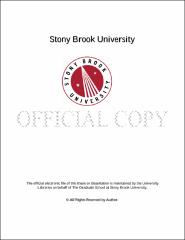| dc.identifier.uri | http://hdl.handle.net/11401/77715 | |
| dc.description.sponsorship | This work is sponsored by the Stony Brook University Graduate School in compliance with the requirements for completion of degree. | en_US |
| dc.format | Monograph | |
| dc.format.medium | Electronic Resource | en_US |
| dc.language.iso | en_US | |
| dc.publisher | The Graduate School, Stony Brook University: Stony Brook, NY. | |
| dc.type | Dissertation | |
| dcterms.abstract | Gelsenberg Chairman Walter Cipa proclaimed in 1969 that the company’s recent successes in Libya had been pivotal. “Even as a latecomer,†he averred, “we have a real chance to take part in the international oil trade.†Indeed, there was reason for such optimism. Gelsenberg’s fields in Libya were the most productive sources any German company had claimed outside of Europe. Although speaking primarily of his own company’s growing production, this statement also reveals much about the fortunes of the German petroleum sector from the 1950s through 1974. The Federal Republic had been slow to fully engage in the upstream (exploration and production) sector of the international oil trade. Unsurprisingly, German independents – receiving only belated and moderate support from successive social market-oriented administrations – encountered few early successes expanding into an Arab world that was proving increasingly petroleum rich, but whose fields had already been claimed by the major internationals. By the end of the 1960s, the Federal Republic seemed to be closing in on its last, best prospects to secure any meaningful degree of energy autonomy. This dissertation traces the West German pursuit of Arab oil from the first promising discoveries of Deutsche Erdöl AG in Syria and the Gelsenberg-Mobil Oil consortium in Libya in 1959 through the price, production, and geopolitical turbulence that would culminate in the 1973/4 oil shock. As the only German companies with proven foreign sources, DEA and Gelsenberg were crucial agents of national foreign oil policy, even as a liberal energy policy left these often risky ventures to private investment and management. In analyzing these particular enterprises, this study argues that the German quest for petroleum security failed in its objective of establishing a major German-controlled petroleum source base in the Arab world. This goal was a black chimera – frequently glimpsed, but ultimately a figment. In the end, however, it was also unnecessary for a Germany already deeply enmeshed in an interdependent and global network of oil sources, companies, states, and markets that functioned as both a cause of and counter to periodic petro-economic crises. | |
| dcterms.available | 2017-09-20T16:53:24Z | |
| dcterms.contributor | Frohman, Larry | en_US |
| dcterms.contributor | Hong, Young-Sun | en_US |
| dcterms.contributor | Marker, Gary | en_US |
| dcterms.contributor | Graf, Rüdiger. | en_US |
| dcterms.creator | Ostrum, Nicholas Robert | |
| dcterms.dateAccepted | 2017-09-20T16:53:24Z | |
| dcterms.dateSubmitted | 2017-09-20T16:53:24Z | |
| dcterms.description | Department of History | en_US |
| dcterms.extent | 395 pg. | en_US |
| dcterms.format | Monograph | |
| dcterms.format | Application/PDF | en_US |
| dcterms.identifier | http://hdl.handle.net/11401/77715 | |
| dcterms.issued | 2017-05-01 | |
| dcterms.language | en_US | |
| dcterms.provenance | Made available in DSpace on 2017-09-20T16:53:24Z (GMT). No. of bitstreams: 1
Ostrum_grad.sunysb_0771E_13288.pdf: 3774810 bytes, checksum: f46aa05761a51db744651c4d1a99ffba (MD5)
Previous issue date: 1 | en |
| dcterms.publisher | The Graduate School, Stony Brook University: Stony Brook, NY. | |
| dcterms.subject | European history -- Middle Eastern history | |
| dcterms.subject | Deutsche Erdöl AG, Gelsenberg AG, Germany, Libya, Petroleum, Syria | |
| dcterms.subject | Deutsche Erdöl AG, Gelsenberg AG, Germany, Libya, Petroleum, Syria | |
| dcterms.title | The Black Chimera: West Germany and the Scramble for Arab Oil, 1957-1974 | |
| dcterms.type | Dissertation | |

